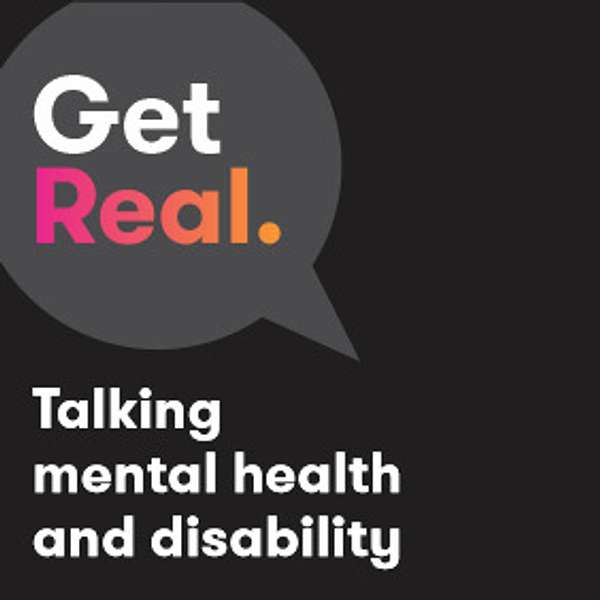
Get Real: Talking mental health & disability
Get Real presents frank and fearless conversations about mental health and disability, including people with lived experience, frontline workers in the sector, as well as policymakers and advocates. Get Real is produced and hosted by Emily Webb and co-hosted by Karenza Louis-Smith on behalf of ermha365 Complex Mental Health and Disability Services provider (https://www.ermha.org/).
Get Real: Talking mental health & disability
Episode 19: Invisible Disabilities
Use Left/Right to seek, Home/End to jump to start or end. Hold shift to jump forward or backward.
Not all disabilities are visible – in fact most aren’t! People with invisible disabilities face all the same barriers as people with obvious disabilities, but compounded by the lack of obvious impairment.
Attitudinal barriers, in particular, are rife – with well-meaning members of the public interrogating people who don’t seem to have a disability (for example, are not in a wheelchair) about using a disabled parking space or toilet. Confronted like this, people with invisible disabilities are forced to declare their disability to total strangers, or argue their case – often in a public space. The humiliation often leads people to fear going out in public, resulting in isolation.
To celebrate the International Day of Persons with Disabilities, we invited Lynn Russell, CEO of Invisible Disabilities Australia and Sarah Bayley, Senior Manager, Complex Services at ermha365 to talk about the challenges faced by people with invisible disabilities, some solutions to help avoid the need for public declarations, and some tips on how we can all improve our behaviour around this issue.
For more information:
Invisible Disabilities Australia - https://www.invisibledisabilities.com.au/about/
ermha365 NDIS services - https://www.ermha.org/ndis-services/
This page of the ermha365 website also contains a short video with stories and statistics around the challenges of some types of invisible disabilities, including mental illness, traumatic brain injuries, autism, learning disability and intellectual disability, and five simple tips we can all follow to support people with invisible disabilities.
ermha365 provides mental health and disability support for people in Victoria and the Northern Territory. Find out more about our services at our website.
Helplines (Australia):
Lifeline 13 11 14
QLIFE 1800 184 527
13 YARN 13 92 76
Suicide Callback Service 1300 659 467
ermha365 acknowledges that our work in the community takes place on the Traditional Lands of many Aboriginal and Torres Strait Islander Peoples and therefore respectfully recognise their Elders, past and present, and the ongoing Custodianship of the Land and Water by all Members of these Communities.
We recognise people with lived experience who contribute to GET REAL podcast, and those who love, support and care for them. We recognise their strength, courage and unique perspective as a vital contribution so that we can learn, grow and achieve better outcomes together.
.jpg)
